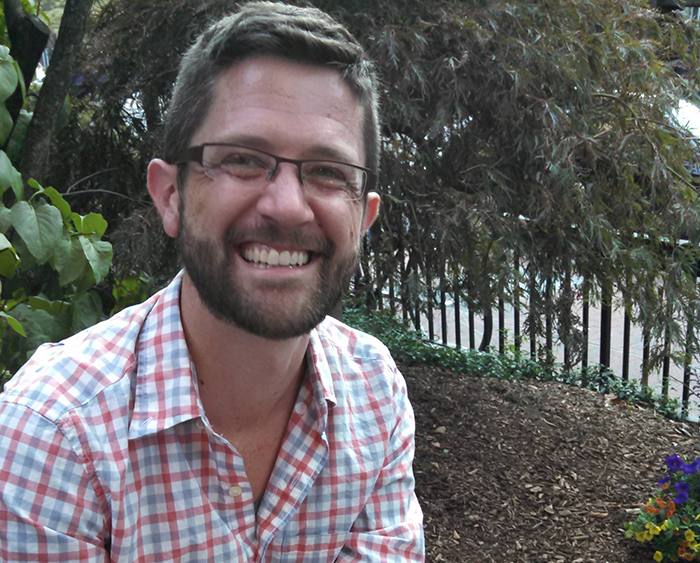Brian McCammack awarded fellowship from the American Council of Learned Societies

Associate Professor of Environmental Studies and Chair of Environmental Studies Brian McCammack was recently awarded a $60,000 fellowship from the American Council of Learned Societies (ACLS) for his book project, Black, Brown, and Green: The Origins of Environmental Justice in the 1970s.
The environmental justice movement focuses on racial equity and environmental health. This new book, McCammack said, is “a collective biography of environmentalists of color who have been lost to history.”
McCammack's book explores the socioeconomic conditions—a worsening economy, a conservative backlash to environmentalism, and choices made by large, wealthy, and influential environmental groups like the Sierra Club and National Audubon Society—that alienated activists of color from the mainstream environmentalism movement and consistently marginalized their perspectives.
McCammack, who has been working on this project since 2018, was previously awarded a fellowship from the National Endowment for the Humanities (NEH), but the fellowship was rescinded in the recent sweeping cuts to national research funds. The ACLS fellowship supports McCammack's research and will allow him to take a leave of absence to focus on the book project.
“I feel incredibly fortunate to have won the ACLS fellowship as I know dozens if not hundreds of NEH grant-winners are completely stuck without funding alternatives, many of them in the middle of their work,” McCammack said.
Shining a light on activists and organizers of color
McCammack's book project uplifts the stories of environmental activists and organizers of color whose names are not part of the public’s general knowledge of key environmental figures.
Some of the key figures highlighted include:
- Larry Young, a Black environmentalist from Baltimore, Maryland, who joined the Izaak Walton League of America and ran their Urban Environment Office for years
- Arturo Sandoval, a Chicano activist who was a regional director for the first Earth Day in 1970 and led a march in Albuquerque, New Mexico
- Freddie Mae Brown, a Black activist in St. Louis who ran a local environmental group called Black Survival
- Vivien Li, an Asian American from Newark, New Jersey, who first became involved in environmentalism as a high schooler in the late 1960s and eventually became the Sierra Club’s first board member of color
By sharing previously uncelebrated stories of the diverse voices of the early environmental justice movement, McCammack hopes to bring more awareness to figures and communities that have been historically unacknowledged as part of the movement.
“The goal is to show that there was nothing inevitable about the environmental movement’s ongoing racial diversity problems,” McCammack said. “It’s still overwhelmingly white and middle-class, even after decades of environmental justice activism from communities of color. Activists of color were active from the very beginning of the modern environmental movement, and from at least the early 1970s influential white environmental groups and activists were well aware of the kinds of environmental concerns that people think of as 'environmental justice' today.”

